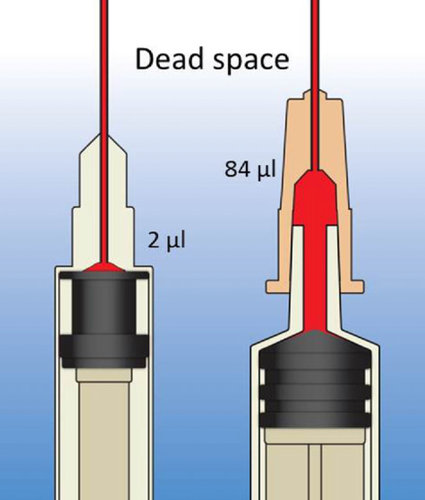Published: January 21, 2013
A study suggests encouraging drug abusers to use thin syringes, which retain less fluid and the virus it may contain.
Distributing “low-dead-space syringes” to addicts could substantially lessen H.I.V.transmission among them, a new study has estimated.
Syringes have widely varying amounts of “dead space” — the amount of fluid retained even when the plunger is fully depressed, said William A. Zule, a researcher at RTI International and the lead author of the paper in The International Journal of Drug Policy.
Fat ones with interchangeable needles may have 40 times as much dead space as thin ones like those used by diabetics. And simulations of the way addicts draw in blood and rinse with water showed that the biggest syringes can retain 1,000 times as much virus as thinner ones.
Many foreign governments that distribute syringes ignore dead space and buy whatever is cheapest, Dr. Zule said.
Recipients of clean syringes are not supposed to share them, but some do. Users of heroin, cocaine or methamphetamine usually accept thin syringes, the study said. Users of poppy straw extract, homemade stimulants or crushed tablets may not.
The best way to get addicts to demand low-dead-space syringes, Dr. Zule suggested, may be to point out that they get more drug.
“That may not be politically correct, but you need messages that speak to the group you have to work with,” he said.
No human clinical trials have proved that such syringes save lives, but the idea is plausible and switching now would be affordable and safe, Dr. Zule argued.


